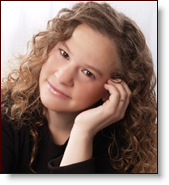
- Create an exciting resume that the reader just can’t put down.
- Tell your story with pictures.
- Showcase samples of your work.
- Answer interview questions using the Challenge-Action-Result story format.
- Ask questions that invite the interviewer to tell their story.
Read the entire post here, so you can see her supporting thoughts.
I get tired of reading blogs… I’m online all day, and anything past three paragraphs gets old, boring and cliche. Imagine how others feel when you sound cliche to them. Whether it’s the network contact who’s come to expect you in a less-than-chipper mood, coming to ask another favor, or the interviewer who has already interviewed 10 people who all sound the same.
When I was interviewing, I was bushed by the end of the day. I’d have 10 – 15 resumes in front of me, with notes on each of them… little scribbles that I might not be able to read the next day. The candidates who stood out where the ones who made an emotional connection. The best, easiest and perhaps most impactful way to make an emotional impression is to have a good story.
One word of advice, keep your stories short. I don’t have time to, nor do I want to, hear a NOVEL. Your story should be ON TOPIC, and CONCISE. If I want to hear more details, I’ll ask. Can you tell a story in two or three sentences? I just did, in the paragraph above (“when I was interviewing…”).
Barbara, as a professional resume writer, suggests you can put a story (or multiple stories) in your resume. You can also use them in interviews to answer almost any interview question. I learned about a thing called a “power statement” which provides a formula to answer a question with a story… the entire response is just three sentences.
In JibberJobber you can keep track of your stories under the Interview Prep area, as well as the Job Journal (premium feature).
What’s your BEST story to use in an interview, on a resume, or in a networking setting? NOTE: I’m not asking for your LIFE story, I’m asking for a story to support your strengths, skills, value-add, etc.
